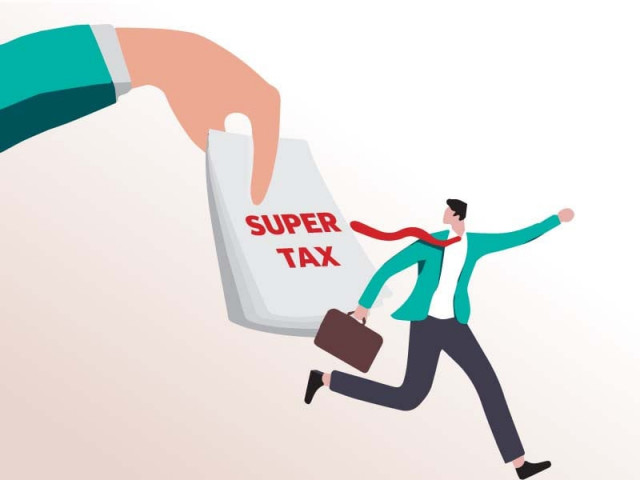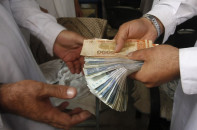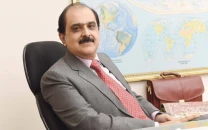No tax payer challenged LHC ruling upholding super tax, FBR tells Supreme Court
Top court seeks summary of all prior judgments by LHC, IHC on the matter

A five-member constitutional bench (CB) headed by Justice Aminuddin Khan took up on Monday a case pertaining to the imposition of super tax.
Federal Board of Revenue’s (FBR) counsel Asma Hamid began with opening arguments. She apprised the court that no taxpayer had challenged the Lahore High Court’s (LHC) verdict, upholding the legality of the super tax imposed under Section 4C of the Income Tax Ordinance, 2001, while reducing its rate for several industries.
She added that the Islamabad High Court (IHC) had already issued rulings on both sections of the matter, noting that 89 petitioners had filed applications in the IHC in 2022.
A three-judge bench of the LHC led by Justice Jawwad Hassan had dismissed petitions challenging the constitutionality of the levy and ruled that the government has the authority to impose such a tax under the Finance Act 2022. However, the court reduced the super tax rate from 10% to 4% for 16 sectors, including banking, offering partial relief to petitioners.
During the hearing today, Justice Muhammad Ali Mazhar questioned what the common factor was in all judicial decisions and sought a brief summary of all rulings be submitted before the court.
Hamid informed the bench that in the case before LHC, most petitioners had already approached the IHC first.
Read: Supreme Court CB questions distribution of super tax funds to provinces
The bench adjourned the hearing until 9.30am tomorrow (Tuesday).
Super Tax
The super tax is an additional levy on high-earning individuals, companies, and industries, largely aimed at big corporations. In the 2022–23 federal budget, the government imposed up to 10% super tax on major sectors including cement, steel, sugar, oil and gas, fertiliser, banks, textiles and others, citing the need to raise extra revenue for economic stabilisation.
Petitions were filed before the SC by individuals and organisations challenging the super tax introduced by the PML-N government in 2015 to raise funds for people displaced by Operation Zarb-e-Azb.
Earlier this year, the top court questioned whether the federal government could distribute super tax revenue to provinces. Lawyers argued the levy, introduced in 2016 to fund displaced persons, has since been extended but no funds have been utilised for the stated purpose.





















COMMENTS
Comments are moderated and generally will be posted if they are on-topic and not abusive.
For more information, please see our Comments FAQ